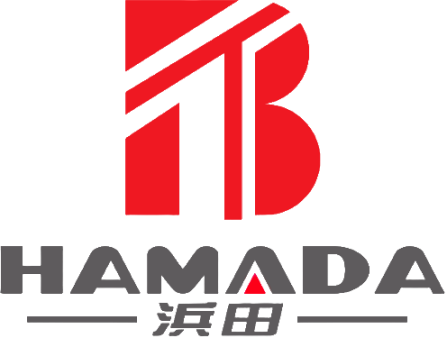English
 English
English Español
Español Português
Português русский
русский français
français 日本語
日本語 Deutsch
Deutsch Tiếng Việt
Tiếng Việt Italiano
Italiano Nederlands
Nederlands ไทย
ไทย Polski
Polski 한국어
한국어 Svenska
Svenska magyar
magyar Malay
Malay বাংলা
বাংলা Dansk
Dansk Suomi
Suomi हिन्दी
हिन्दी Pilipino
Pilipino Türk
Türk Gaeilge
Gaeilge عربى
عربى Indonesia
Indonesia norsk
norsk اردو
اردو čeština
čeština Ελληνικά
Ελληνικά Українська
Українська Javanese
Javanese فارسی
فارسی தமிழ்
தமிழ் తెలుగు
తెలుగు नेपाली
नेपाली Burmese
Burmese български
български ລາວ
ລາວ Latine
Latine Қазақ
Қазақ Euskal
Euskal Azərbaycan
Azərbaycan slovenský
slovenský Македонски
Македонски Lietuvos
Lietuvos Eesti Keel
Eesti Keel Română
Română Slovenski
Slovenski मराठी
मराठी Српски
Српски
NEWS
-
 Read More
Read More
Harmonic Gearbox On-site Assembly Guide
Use a dedicated guide sleeve to assist insertion. Maintain axial pressure ≤50N during rotational installation.
-
 Read More
Read More
Innovative Practices in Driving the C-Axis of EDM Machines with Harmonic Reducers and Panasonic Motors
In the field of precision machining, the C-axis (rotating axis) technology of EDM machines directly impacts the machining accuracy and surface quality of complex curved parts. In recent years, the combination of harmonic reducers and Panasonic servo motors, with their high precision, high rigidity, and dynamic response, has become an innovative solution for high-end EDM machine C-axis systems.
-
 Read More
Read More
Innovative Applications of HarmonicDrive Actuators in Semiconductor Equipment
As semiconductor process technology evolves towards sub-5nm, equipment places higher demands on the accuracy, reliability, and space utilization of motion control systems. HarmonicDrive, with its integrated harmonic reduction technology and servo motor design, has become a core drive solution for key processes such as CMP (Chemical Mechanical Polishing), wafer transport, and photolithography equipment.
-
 Read More
Read More
Domestic Substitution Case Study: Technological Breakthroughs and Cost Advantages
Harmonic Drive Reducer modules, newly developed by Harmonic Drive, are specifically designed for humanoid robot finger joints. With a compact diameter of just 28mm, they achieve 0.1° repeatability while withstanding 15Nm of peak torque. Their patented flexible wheel material and optimized tooth profile ensure a lifespan exceeding 20,000 hours, meeting the high-frequency grasping demands of robots.
-
 Read More
Read More
Customer Delegation Visits Company
Recently, a delegation of important clients was invited to visit DOBOT's headquarters and smart manufacturing exhibition hall. The delegation gained an in-depth understanding of the company's latest achievements in smart manufacturing, collaborative robots, educational robots, and automation solutions, and expressed high recognition of DOBOT's global market presence and innovative strength.
-
 Read More
Read More
Japan HarmonicDrive: Precision Engineering Powering the Future of Automation
As industries worldwide race toward smarter, more compact, and ultra-precise automation systems, Japan HarmonicDrive has firmly positioned itself as a global leader in high-precision motion control technology. Known for its pioneering work in strain wave gearing, HarmonicDrive products are now at the core of advanced robotics, aerospace systems, semiconductor manufacturing, and surgical devices.
-
 Read More
Read More
What Is a Planetary Gear Reducer? A Compact Powerhouse for Precision Motion
In the fields of automation, robotics, and industrial machinery, planetary gear reducers play a vital role in ensuring smooth, powerful, and highly accurate motion control. But what exactly is a planetary gear reducer, and why is it preferred in so many demanding applications?
-
 Read More
Read More
The Principle of HarmonicDrive: Precision Through Flexibility
The HarmonicDrive, also known as a strain wave gear, operates on a unique mechanical principle that enables high precision, zero backlash, and compact size—all critical for advanced motion control systems like robotics, aerospace, and medical devices.
-
 Read More
Read More
What Are the Three Types of Rotary Actuators? Exploring Key Motion Control Technologies
As automation continues to shape modern industry, rotary actuators have become essential components in motion control systems, robotics, and machinery. These devices convert energy into controlled rotational motion, enabling precise positioning and movement in countless applications. But what are the three main types of rotary actuators, and how do they differ?
-
 Read More
Read More
What Is the Purpose of a Harmonic Drive Actuator? Precision Redefined in Motion Control
In the ever-evolving world of robotics and automation, achieving highly accurate and compact motion control is essential. This is where the harmonic drive actuator plays a transformative role. But what exactly is the purpose of a harmonic drive actuator, and why is it preferred in advanced engineering applications?
-
 Read More
Read More
What Is the Difference Between a Rotary Actuator and a Motor
In the world of industrial automation and robotics, both rotary actuators and motors are essential components used to generate rotary motion. While they may appear to perform similar functions, their structure, function, and application reveal key differences. So, what is the difference between a rotary actuator and a motor?
-
 Read More
Read More
What is the Difference Between Harmonic Reducer and RV Reducer?
In the world of industrial motion control, precision gear systems are essential for achieving high efficiency, accuracy, and performance. Among the various gear types, harmonic reducers and RV reducers (also known as robotic reducers) are two of the most commonly used in applications such as robotics, automation, and aerospace. While both serve similar functions—providing torque reduction and motion control—they operate through different mechanisms and offer distinct advantages. Understanding the differences between these two types of reducers can help engineers and manufacturers choose the right system for their specific needs.












